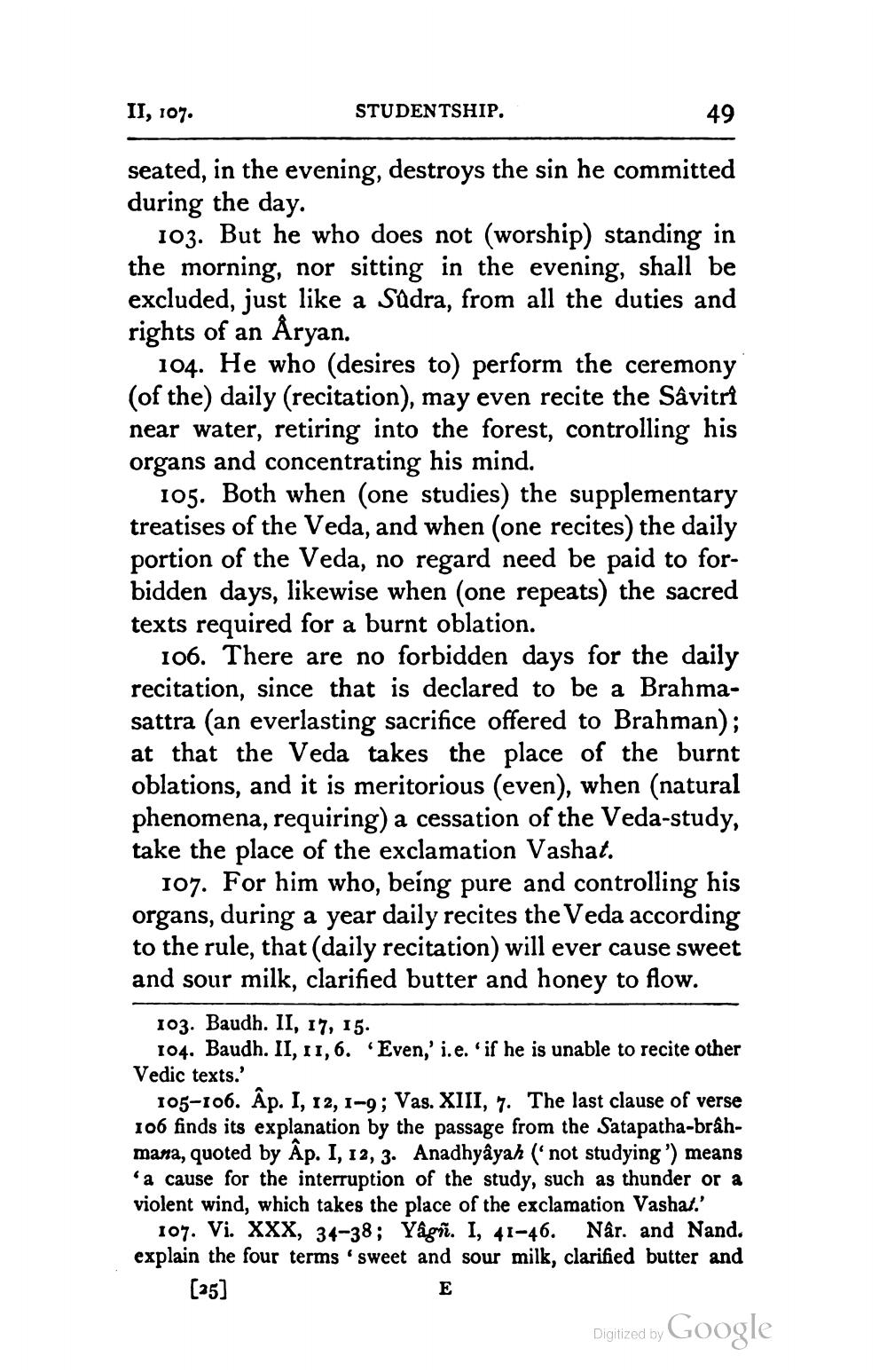________________
II, 107.
STUDENTSHIP.
49
seated, in the evening, destroys the sin he committed during the day.
103. But he who does not (worship) standing in the morning, nor sitting in the evening, shall be excluded, just like a Sudra, from all the duties and rights of an Aryan.
104. He who (desires to) perform the ceremony (of the) daily (recitation), may even recite the Savitri near water, retiring into the forest, controlling his organs and concentrating his mind.
105. Both when (one studies) the supplementary treatises of the Veda, and when (one recites) the daily portion of the Veda, no regard need be paid to forbidden days, likewise when (one repeats) the sacred texts required for a burnt oblation.
106. There are no forbidden days for the daily recitation, since that is declared to be a Brahmasattra (an everlasting sacrifice offered to Brahman); at that the Veda takes the place of the burnt oblations, and it is meritorious (even), when (natural phenomena, requiring) a cessation of the Veda-study, take the place of the exclamation Vashat.
107. For him who, being pure and controlling his organs, during a year daily recites the Veda according to the rule, that (daily recitation) will ever cause sweet and sour milk, clarified butter and honey to flow.
103. Baudh. II, 17, 15.
104. Baudh. II, 11, 6. •Even,' i.e. 'if he is unable to recite other Vedic texts.
105-106. Ap. I, 12, 1-9; Vas. XIII, 7. The last clause of verse 106 finds its explanation by the passage from the Satapatha-brâhmana, quoted by Ap. I, 12, 3. Anadhyâyah (not studying ') means
a cause for the interruption of the study, such as thunder or a violent wind, which takes the place of the exclamation Vashati'
107. Vi. XXX, 34-38; Yagñ. I, 41-46. Når. and Nand. explain the four terms 'sweet and sour milk, clarified butter and [25]
Digitized by Google




